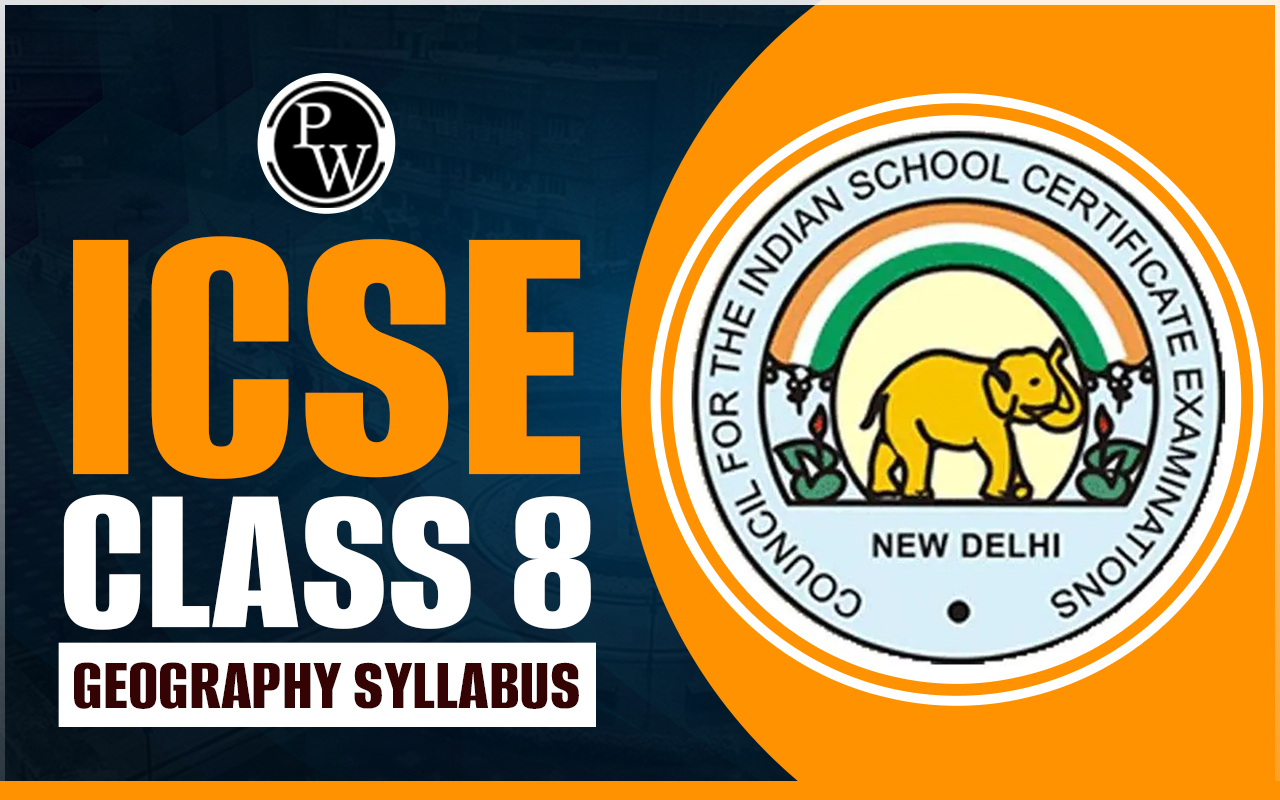
ICSE Class 8 Biology syllabus for the academic year 2025-26 covers a wide range of important topics that help students understand the living world. The syllabus includes chapters on how plants transport food and minerals, reproduction in both plants and animals, and the study of ecosystems.
It also focuses on human body systems such as the endocrine, circulatory, and nervous systems, along with important life stages like adolescence.
Students learn about common diseases and first aid, as well as food production and management. This syllabus is created to build a strong foundation in biology by combining theory with practical knowledge, helping students develop scientific thinking and awareness about health and the environment.
ICSE Class 8 Biology Syllabus 2025-26
ICSE Class 8 Biology syllabus for 2025-26 covers essential topics that help students understand plants, animals, human body systems, and the environment. Below is the complete list of chapters included in the syllabus:
|
ICSE Class 8 Biology Syllabus 2025-26 |
|
|
Chapter No. |
Chapter Name |
|
1 |
Transport of Food and Minerals in Plants |
|
2 |
Reproduction in Plants |
|
3 |
Reproduction in Animals |
|
4 |
Ecosystem |
|
5 |
Endocrine System |
|
6 |
Adolescence |
|
7 |
Circulatory System |
|
8 |
Nervous System |
|
9 |
Diseases and First Aid |
|
10 |
Food Production and Management |
Chapter Wise Overview of ICSE Class 8 Biology Syllabus 2025-26
Chapter 1: Transport of Food and Minerals in Plants
-
Explains the processes by which plants absorb water and minerals from the soil.
-
Describes the roles of xylem (transports water and minerals) and phloem (transports food).
-
Covers transpiration and its importance in the movement of water in plants.
Chapter 2: Reproduction in Plants
-
Introduces sexual and asexual reproduction in plants.
-
Explains parts of a flower and their roles in reproduction.
-
Covers pollination (self and cross), fertilization, seed formation, and dispersal methods.
Chapter 3: Reproduction in Animals
-
Discusses the differences between sexual and asexual reproduction in animals.
-
Explains the human male and female reproductive systems.
-
Covers fertilization (internal and external), development stages, and birth in humans.
Chapter 4: Ecosystem
-
Defines ecosystems and their components – biotic (living) and abiotic (non-living).
-
Explains producers, consumers, decomposers, food chains, and food webs.
-
Emphasizes balance in nature and human impact on ecosystems.
Chapter 5: Endocrine System
-
Introduces glands like the pituitary, thyroid, adrenal, pancreas, etc.
-
Describes hormones and their roles in regulating body functions like growth, metabolism, and mood.
-
Explains the importance of hormonal balance and effects of its disturbance.
Chapter 6: Adolescence
-
Covers the stage of human development from childhood to adulthood.
-
Explains physical, emotional, and hormonal changes during puberty.
-
Discusses personal hygiene, mental health, and changes in behavior.
Chapter 7: Circulatory System
-
Explains the structure and function of the human heart and how it pumps blood.
-
Describes blood vessels – arteries, veins, and capillaries.
-
Introduces blood components (RBCs, WBCs, platelets, plasma) and their functions.
Chapter 8: Nervous System
-
Covers the structure and role of the brain, spinal cord, and nerves.
-
Explains how the nervous system controls actions and reacts to stimuli.
-
Introduces reflex actions and coordination in the human body.
Chapter 9: Diseases and First Aid
-
Differentiates between communicable and non-communicable diseases.
-
Covers causes, symptoms, prevention, and control of common diseases.
-
Teaches basic first aid for cuts, burns, insect bites, and fractures.
Chapter 10: Food Production and Management
-
Explains agricultural practices like sowing, irrigation, harvesting, and storage.
-
Describes animal husbandry, poultry, and fisheries.
-
Stresses the importance of sustainable farming and food security.
Preparation Tips for ICSE Class 8 Biology
Biology can be a really interesting subject if you understand it the right way. It’s all about learning how living things work—plants, animals, and even our own bodies! To do well in ICSE Class 8 Biology, here are some simple and smart tips that can help you prepare better:
-
Start by going through your syllabus. Make a list of all the chapters you need to study. This helps you plan your time and avoid missing any important topics.
-
Don’t just try to memorize definitions—try to understand what they actually mean. For example, know how the heart pumps blood or how plants make food. When you understand the "why" and "how," it’s easier to remember.
-
Biology has many diagrams like the parts of a flower, human brain, or circulatory system. Practice drawing and labeling them. Diagrams are very scoring and often come in exams.
-
Write down short notes in your own words while studying. Highlight key terms, and make flowcharts for long processes. These notes will help a lot when you revise before the exam.
-
Try solving questions from your textbook and past years' papers. This gives you a good idea of what types of questions are asked and how to answer them well.
-
Don’t wait till the last minute. Revise your notes and diagrams regularly. Even spending 15–20 minutes every day for revision can make a big difference.
-
If you don’t understand something, ask your teacher or use trusted online resources. Watching short videos on topics can also make learning easier.
-
During exams, don’t panic. Stay calm, read the questions carefully, and answer with confidence. Trust your preparation!
ICSE Class 8 Biology Syllabus 2025-26 PDF Download
Students preparing for the ICSE Class 8 Biology exam 2025–26 can download the complete syllabus in PDF format from the link given below.
Having the syllabus PDF handy allows easy access to all the chapters and topics, helping students plan their studies effectively and stay organized throughout the academic year. This ensures that they cover every important concept like plant and animal reproduction, the circulatory system, diseases, and more well in advance of their exams.
ICSE Class 8 Biology Syllabus
Study without using the internet
ICSE Class 8 Biology Syllabus FAQs
Is the ICSE Class 8 Biology syllabus the same across all schools?
Are diagrams important in Class 8 Biology exams?
Does the syllabus include practicals for Class 8 Biology?
How can I prepare effectively for Class 8 Biology?










